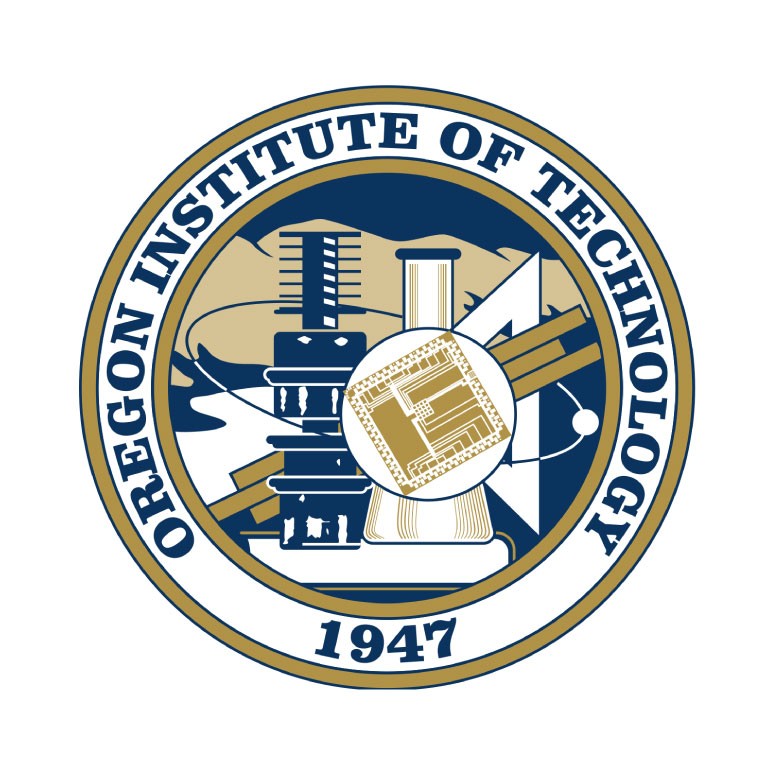For many years before online education became widely available, selecting the right university involved planning a campus visit and experiencing the culture of each school in person. Now, with online programs becoming an increasingly popular option for adults who need the flexibility to balance school, work, and personal commitments, a campus visit is simply not plausible.
Plus, many online schools are located hundreds of miles away or maintain no traditional campus to visit. Instead, it’s important to search for programs based on the main indicators of their quality: graduation rate, return on investment, rankings, and accreditations.
Computer information systems, sometimes called “information technology” or simply “information systems” by schools that offer undergraduate majors in this career field, is one of the most widely available online programs. Information systems degrees are considered “big picture” degree programs, with courses on how technology works, which applicants fit with each organization type, and how management decisions are informed by evolving technologies. Rather than focusing on programming, like a computer science degree, an information systems major will focus on decision-making, best practices, use cases, and technical support.
Related:
- Best Bachelor’s in Video Game Development
- Top Schools for AI Degrees
- Top Database Administration Schools
- Best App Development Schools
- Best Schools for Computer Science Degrees
- Top Bachelor’s in Computer Information Security
- Top Game Designing Schools
What are the best online bachelor’s in information systems and information technology?
The Internet offers no shortage of online programs in information systems and information technology. Though many programs are available, they don’t offer the same commitment to academic rigor, prestige, career support, and value for the price of tuition paid. In ranking the best computer information systems degrees, the following criteria were used as part of the ranking methodology:
- Accredited: Every program ranked in this list had to be accredited by a regional body in the United States, such as the Higher Learning Commission of the North Central Association of Colleges and Schools. Some colleges and universities also featured a programmatic accreditation specifically for their computer information systems degree, which boosted their performance in the rankings due to increased prestige.
- Prestige: The prestige, or perceived prestige, of a program contributed to its ranking. A program’s prestige often corresponds to its quality, potential for networking, and command of a high salary, all of which benefit graduates.
- Graduation Rate: An online program is only worthwhile if students graduate with a degree in computer information systems. Schools with a high graduation rate are given preference over colleges and universities where fewer students complete their degree within 6 years.
- Networking and Alumni Support: A college degree program doesn’t end when the diploma is granted. Schools must offer excellent networking opportunities, career services, and alumni support, over the long term. In this ranking, schools with high job placement rates, active alumni associations, and useful career services professionals are ranked higher than schools without these benefits.
- ROI: The price of tuition isn’t cheap, and student loan balances often aren’t small. To make these expenses and long-term obligations worthwhile, a school needs to “pay students back” over the long term with higher salaries and a greater shot at professional success. A school where students earn more than the cost of tuition over a lifetime ranks higher than a school where students barely break even.
Please Note: Tuition is based on information from the schools website and subject to change. When applicable it refers to in-state tuition.
Penn State World Campus

When it comes to prestige, affordability, and career success, it’s hard to compete with The Pennsylvania State University. Widely regarded as one of the best, top-tier state universities in the United States, Penn State is home to numerous top-ranked degree programs in technology-related fields, maintains the largest dues-paying alumni association on the planet, enjoys a record-high return on investment, and has a very high career placement rate. Penn State’s graduation rate is also one of the highest among its peers at top-tier state schools.
The World Campus at Penn State offers every bit of prestige and rigor that the university’s on-campus students enjoy. Every World Campus classroom revolves around discussion boards, video lectures, and group projects. Every test is proctored, in person, by a certified professional. Every course offered online is translated directly from an offline version of that same class. The same professors often teach both online and offline courses. Even better, World Campus graduates receive a Penn State diploma that bears no indication of their degree having been completed online and are treated just like any other Penn State student by the career services office and the alumni association.
UMASS Global

UMass, the flagship public university of Massachusetts, has spent years building up its online degree programs in several fields. The school’s online computer information systems degree is one of its oldest and most popular programs, just behind the online MBA program at UMass Amherst. In addition to affordable tuition that costs $500 per credit, the school offers four concentrations that align with today’s most common IT job openings: computer science, computing, information technology, and operations technology.
Overall, 75 percent of UMass students graduate within six years. Another 15 percent of UMass graduates enroll immediately in a graduate program relevant to their career field.
Drexel University

Located in Philadelphia, Drexel University has become a big name in online education since the establishment of its Drexel University Online subsidiary over a decade ago. Drexel University’s online program in computing and security technology is a perfect choice for students who want hands-on experience as well as a flexible academic calendar.
Unlike many of its peers, Drexel is based on a quarter system and offers the nation’s top-ranked co-op program. While three-quarters per year involve taking academic coursework, Drexel students spend one-quarter working for a company in their chosen field. This co-op experience is both full-time and paid, which bodes well for a graduate’s resume.
In addition to its focus on career experience and job placement, Drexel is a sound investment. Within 20 years of graduation, Drexel University students have earned more than a half-million dollars more than their investment in the cost of tuition. This high ROI is thanks in no small part to the fully developed resumes of Drexel graduates and the top-ranked career services office that services online and offline students with a full staff of career advisors and recruiters.
Arizona State University

Arizona State consistently ranks as one of the best flagship, state-funded universities in the United States, and for good reason. In addition to being highly affordable, Arizona State offers top-notch professional accreditations, a history of groundbreaking research, and a reputation for academic rigor that has become a model for other institutions across the country.
Arizona State offers some of the unique concentrations to students within its B.S. in information technology. These include the design and construction of web applications, network security, or video game design, computer information systems, and IT decision-making for managers. Online students who want to go beyond the classroom can also substitute as many as three elective courses for professional internships in an IT-related position.
Use their tuition calculator to determine the cost.
Colorado State University Global

Above and beyond any other statistic or attribute, CSU-Global offers one unique feature to its students worth mentioning: a tuition price lock. Once students have chosen to enroll at CSU-Global, their tuition will never rise as long as they remain continuously enrolled. This makes budgeting for higher education particularly easy. It could also explain why 65 percent of students eventually graduate with an average of just $26,000 in student loan debt.
One of the most important aspects of the online bachelor’s degree in information systems at CSU-Global is its focus on hardware and software decision-making. This managerial focus teaches students about equipment and software compatibility, license cost accounting, and alignment of professional goals with technological tools. Though no concentrations are available, the 120-credit program is more focused on technical knowledge than general education. This allows students to gain more hands-on experience, and a broad professional portfolio, in the skills that will characterize their career. Within 20 years of graduation from the program, students can expect to earn an extra $384,000.
Northeastern University

Northeastern’s top-ranked degree in information systems is the only program on this list to offer a concentration in web design and online media, and one of the few to offer a concentration in networking systems. The school, which ranks in the top 20 for national research institutions, enjoys an 82 percent graduation rate within six years of a student’s initial enrollment. The average student finishes with just over $25,000 in student loans, which is impressively below the national average for private universities. Within 20 years of graduating, the typical Northeastern alumnus has earned $526,000 on their investment in tuition and fees.
Like its peer institutions in the upper echelon of national research universities, Northeastern maintains a massive career office that is central to its success as a financial investment. Students create a professional portfolio throughout their four years of study, meet with a career advisor at least twice before graduation, and gain admission to the “Husky Nation” alumni association for continued networking after graduation. The school’s alumni association, with chapters across the United States, is one of the largest and most active in the country.
Oregon Tech

Oregon Tech offers a unique program structure for online degrees in information systems. The school goes above and beyond the 120-credit requirement for competing institutions, requiring 180 credit hours offered on a trimester or quarter-based system.
Oregon Tech also offers unique concentrations that will appeal to a very specific subset of online students. These concentrations include applications development, business systems analysis, and health informatics. As a major public university in the state of Oregon, Oregon Tech adheres to state standards both for curriculum and for student outcomes. To that end, students are given access to career placement and advising services, can request a resume review and skills audit, and take part in a completely free alumni association for post-graduation networking.
Southeast Missouri State University

Another Midwestern school known for its affordability, Southeast Missouri State University boosts its ROI by charging only $316 per credit for in-state students. Unlike some of its competition in the online education space, Southeast Missouri State University is focused centrally on networking, collaboration, and group study. Throughout all of its IT courses for undergraduate students, SEMO requires group course projects, a group capstone course, online discussions, virtual networking events, and virtual career fairs.
The 120-credit program for online students mirrors the offline curriculum. All students must complete at least 42 credits in general education, nine quantitative credits, and a series of core courses in information technology. The rest of a student’s program is based on their chosen concentration, which could be business systems, security systems, or general information technology.
University of Minnesota – Crookston Campus

Minnesota’s public universities offer one of the most affordable tuition rates to both in-state and out-of-state students, and that includes online programs. The Crookston campus of the University of Minnesota charges just $5,739.00 per semester. That’s less than some state schools charge per semester, making the ROI particularly strong for online students who don’t need to lump room, board, and technology fees into their overall costs.
In addition to mirroring the offline curriculum for its Bachelor of Science degree in information systems, Crookston students receive access to a flexible, 24-hour tutoring service and are paired with advisors who serve as academic resources, professional mentors, and career counselors. Students are eligible to pursue internships for course credit during the final two years of the program and receive admission to the massive University of Minnesota alumni organization upon graduation. With a series of career fairs and career counseling events specifically for its online learners, the Crookston online program also boasts a career placement rate of 80 percent within six months of graduation.
Wilmington University

Based in New Castle, Delaware, just an hour outside of Philadelphia, Wilmington University has long been one of the biggest names in adult education for students in the Delaware Valley. Now, with a massive online education effort, Wilmington University is among the 10 fastest-growing colleges and universities in the United States. The school continues to climb through U.S. News and World Reports rankings for schools in the Mid-Atlantic region of the United States, offers affordable tuition and has a career services office that holds both local and online events to match students with employers nationwide.
The school’s B.S. in information systems management is a 120-credit program, with available concentrations in information security and management information systems. With a curriculum that is more professionally focused, and less focused on general education requirements, WilmU uniquely prepares its students to hit the ground running in an entry-to-mid-level position. Furthermore, students can substitute up to three core program requirements for a cooperative learning experience at a relevant employer of their choosing. Tuition is just $409 per semester or $250 for military members, and the school estimates a 10.65 percent annual return on investment from its programs.
Frequently Asked Questions
Yes, a bachelor’s in computer information systems is worth it for many reasons. It opens doors to lucrative careers in IT, equipping you with valuable skills in technology and business. The demand for IT professionals continues to grow, making this degree a promising investment in your future.
With a degree in Computer Information Systems, you can pursue various rewarding careers in technology and business. Some potential roles and opportunities include:
• Systems Analyst: Analyzing and designing information systems for organizations.
• Network Administrator: Managing and maintaining computer networks.
• Database Administrator: Ensuring the security and efficiency of databases.
• IT Consultant: Advising businesses on technology solutions.
• Software Developer: Creating and testing software applications.
• Cybersecurity Analyst: Protecting organizations from digital threats.
• Project Manager: Overseeing IT projects from planning to execution.
A Bachelor of Arts (BA) in Computer Information Systems typically emphasizes a broader education with a focus on liberal arts courses, while a Bachelor of Science (BS) in the same field places a stronger emphasis on technical and scientific coursework. The BS may require more mathematics and science-related classes, providing a more specialized and technical education. The choice between a BA and BS depends on your academic interests and career goals within the field of computer information systems.
A Bachelor of Computer Information Systems (BCIS) degree is an undergraduate program that focuses on preparing students for careers in the field of information systems and technology. It covers a broad range of topics, including:
•computer programming
• database management
• network administration
• cybersecurity
The degree equips students with the knowledge and skills needed to design, implement, and manage information systems in various organizations.
A Bachelor’s degree in Computer Information Systems typically takes four years to complete, assuming full-time enrollment and successful progression through the program’s required coursework. The duration may vary based on factors such as part-time enrollment, credit transfers, and individual pacing. The program provides students with a solid foundation in computer science, information systems, and related fields to prepare them for careers in technology and IT management.
Yes, a degree in Computer Information Systems often involves coding. While the level and extent of coding may vary depending on the program and specific courses, students typically learn programming languages and gain coding skills as part of their curriculum. These skills are valuable for understanding and developing software, applications, and systems, which are essential aspects of computer information systems.
